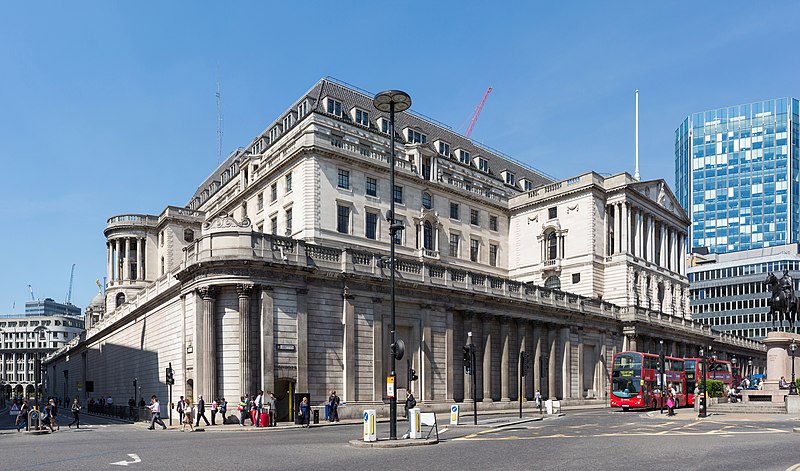
The Bank of England has decided to keep interest rates unchanged at 5.25% as the country witnesses a decline in inflation from its record highs. This decision was reached with a majority vote
of 6-3 by the Monetary Policy Committee, aligning with the expectations of many economists, and it signifies that the UK's interest rates are staying at their highest point in 15 years.
Notably, this is the second time since September that the Bank of England has opted not to raise interest rates. Governor Andrew Bailey has voiced the effectiveness of higher interest rates in curbing inflation, emphasizing the need for inflation to continue its downward trajectory toward the 2% target. Bailey stated, "We've held rates unchanged this month, but we'll be watching closely to see if further rate increases are needed. It's much too early to be thinking about rate cuts."
Inflation, which had previously reached double-digit figures, stood at 6.7% for the year up to September, showing no change from the prior month. This figure, while notably high compared to other G7 economies, represents a reduction in inflationary pressures.
The Bank of England's outlook foresees a significant deceleration in inflation to 4.8% in October, with further declines expected in the coming year, particularly in energy and food prices.
Chancellor Jeremy Hunt responded to the decision by noting the positive developments in the economy. He mentioned that falling inflation and rising wages, coupled with economic growth, underscore the UK's resilience. He emphasized the need for continued growth to foster prosperity and outlined plans for boosting economic growth through private investment, increased employment, and a more productive government.
Despite these positive aspects, the Bank of England has adjusted its forecasts, projecting zero economic growth for the UK from the present moment through the entirety of the following year, which is likely to include a general election. The central bank expressed its concern over the slowing pace of economic growth in the UK.
Governor Bailey refrained from providing specific predictions on where interest rates might stabilize in the near future, stating that the committee doesn't engage in extensive discussions about the equilibrium rate for rates.
In the Bank's outlook, it anticipates that inflation will remain above 2% until the final quarter of 2025. Analysts believe that the tightening cycle has come to an end, even though inflation continues to exceed the Bank of England's 2% target.
Laura Suter, head of personal finance at AJ Bell, noted that maintaining the interest rate at 5.25% aligns with expectations and signals a potential end to nearly two years of consistent rate hikes. However, the general consensus is that interest rates may not be cut until 2024, with no sharp and swift reductions expected.
It's worth mentioning that other central banks, such as the Federal Reserve and the European Central Bank, have also chosen to maintain their interest rates. While this decision may be welcomed by homeowners, pressure persists as mortgage rates remain higher than historic lows.
Uswitch.com mortgage expert, Kellie Steed, pointed out that although mortgage rates have slightly decreased in recent months, they are still notably above the historic lows seen a few years ago. The average two-year fixed mortgage rate remains above 6%, and homeowners nearing their remortgaging periods may face higher costs than before. While rates may not return to the 1-2% levels seen in the past, switching to a new mortgage deal still offers potential savings, especially considering that the average standard variable rate remains well above 8%. Photo by Diliff, Wikimedia commons.


































